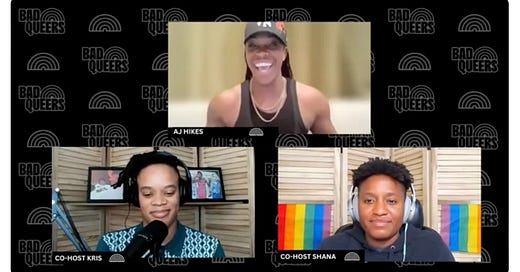ACLU Deputy With $543,500 Salary Issues Many False Or Misleading Claims About Pediatric Gender Medicine
The 4th highest paid staffer, AJ Hikes was the ACLU's 1st DEI chief and is at the center of an NLRB case against the ACLU that found it illegally fired an employee on claims she used racist language.
The ACLU’s fourth highest paid staffer, who is at the center of a National Labor Relations Board case against the legal nonprofit that it lost in August, made a series of false or misleading claims about pediatric gender medicine in a recent interview.
AJ Hikes, who identifies as nonbinary, uses they/them pronouns and describes themselves in their ACLU bio as “a social justice advocate, community organizer, TED Talk Speaker, and unapologetically queer and Black,” holds a powerful position at the liberal legal juggernaut as the deputy executive director for strategy and culture.
Keep reading with a 7-day free trial
Subscribe to Hazard Ratio: Benjamin Ryan to keep reading this post and get 7 days of free access to the full post archives.




